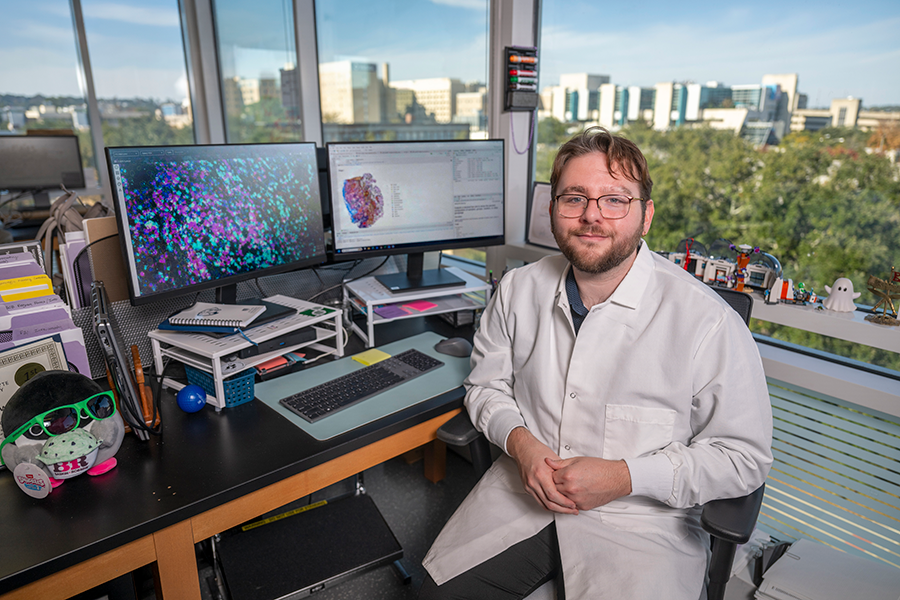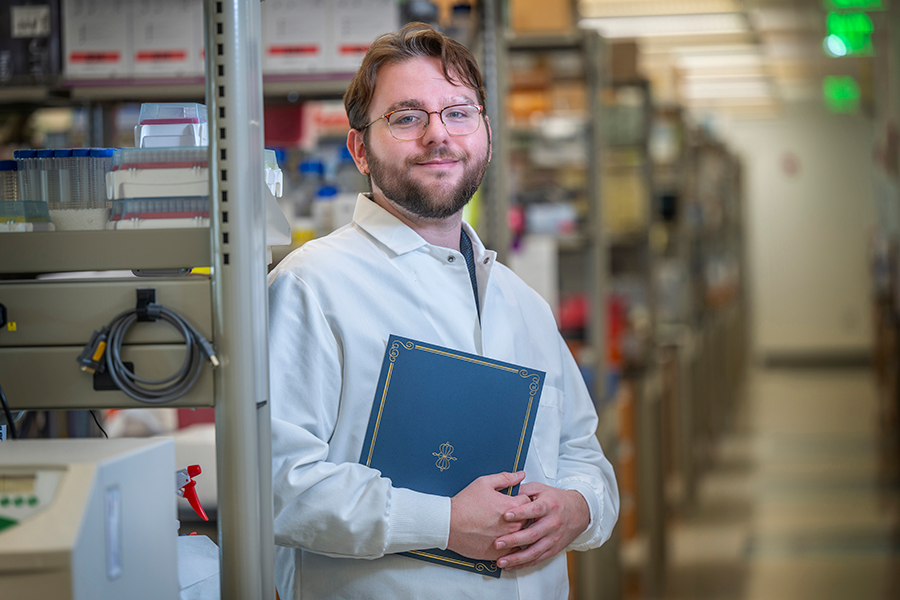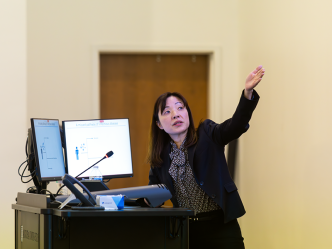Austin Lowery, a third-year PhD student with Augusta University’s Immunology Center of Georgia, is already making a name for himself in the spatial biology field. Lowery recently presented his method to analyze spatial protein data at the Society of Leukocyte Biology 2025 meeting and was awarded the Presidential Scholar Award.
A graduate student in the Biochemistry and Cancer Biology program studying under Yangfang “Peipei” Zhu, PhD, and Austin Chiang, PhD, Lowery was one of four graduate student finalists asked to present at the meeting.
“Honestly, I was kind of in shock for a little bit because it was the first award I’d received at an internationally recognized conference or society. It was exciting, but it was also hard to believe at the same time because I thought, ‘Wow, my work paid off,’” Lowery said. “I was honestly just happy to be there, so the fact I won was an added bonus because all the other candidates were doing such vastly different work than I was doing, and I wasn’t even sure if the crowd would appreciate my work.”

Lowery’s abstract, “scSpatial ProtECT: A Streamlined Workflow for Single-Cell Spatial Proteomic Analysis,” explains the method of single-cell spatial protein expression via cell trademarks. This approach utilizes traditional single-cell analysis tools in a non-conventional way to identify neutrophils, among other cell types, in the tumor environment and accommodates the new technological challenges that spatial biology analysis poses.
One of the primary challenges researchers face is non-conclusive cell-typing owing to misleading expression of certain markers, which is one of the core issues that Lowery’s methods attempt to mitigate.
Lowery’s research studies neutrophils and their significance in oral cancer. For researchers worldwide, the understanding of neutrophil functions in oral cancer is lacking. Neutrophils characteristically have a dual role in cancer; they are either pro-tumor or anti-tumor. Lowery’s research works to understand this dual role in oral cancer.

Historically, increased neutrophils contribute to cancer progression. However, as different populations of neutrophils are being discovered, the understanding of neutrophil contributions to various cancers has become more dynamic. Lowery aims to fill the space of research in neutrophil populations and functions in oral cancer.
“Identifying these populations may allow us to unveil populations that correlate with disease stage, tumor burden and therapy potential. My research is the first small step,” Lowery stated.
He attended the conference because he wanted to hear about work being done in the niche field of neutrophils. As a young scientist, he wanted to hear about the notable advances his peers were making in their field of study, but little did he know he would bring home the Presidential Scholars award for his cutting-edge research.
“I’m incredibly proud of Austin for receiving this prestigious award – an extraordinary achievement for a third-year graduate student,” Zhu said. “His curiosity, perseverance and creativity have driven this challenging and innovative project forward, and this recognition not only celebrates his remarkable accomplishments so far but also points to his tremendous potential to shape the future of the field.”
 Augusta University
Augusta University




